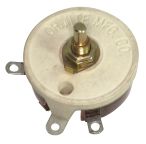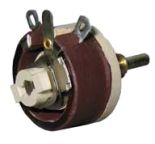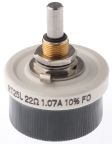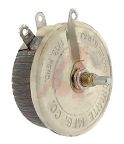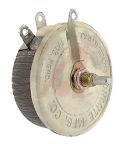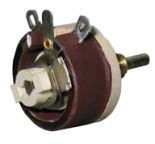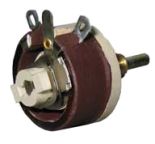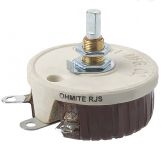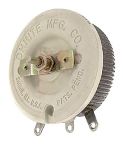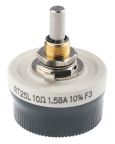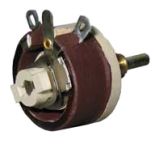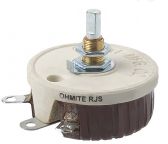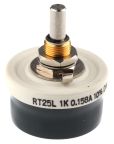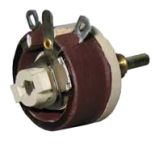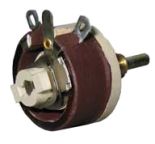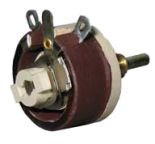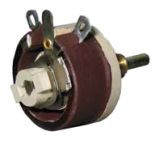Rheostats
A rheostat is a variable resistor which is used to control current or vary resistance within an electrical circuit. They are able to vary the resistance in a circuit without interruption. Rheostats are very similar in construction to potentiometers, but they are designed to work with higher currents. Rheostats are used in motor speed controls, dimmer switches any any applications which require control of the flow of an electric current.
How do rheostats work?
Rheostats use two connections, even when 3 terminals are present, the first connection is made to one end of the resistive element and the other connection to the wiper (sliding contact). Resistive wire is wound around an insulating ceramic core, as the wiper slides over the windings the resistance, and therefore current, produced is altered.
Types of Rheostat
- Rotary type – Mostly used in power control applications. Rotary rheostats feature a turnable shaft that adjusts the resistance. They are used to control multiple applications in parallel or to increase the power rating or adjusting range.
- Slide type – Slide rheostats, or linear rheostats, are often used for education and in laboratory environments. Linear or slide types are constructed of resistive wire wound on an insulating cylinder, a sliding contact moves along the winding to increase or decrease the resistance.
What is the difference between a potentiometer and a rheostat?
Both a rheostat and a potentiometer are a type of variable resistor. They feature a similar construction, however, a rheostat features 2 terminals and a potentometer features 3 terminals. A primary difference in functionality is that a rheostat is often implemented to change current, while pots can be used to change the voltage within a circuit.
